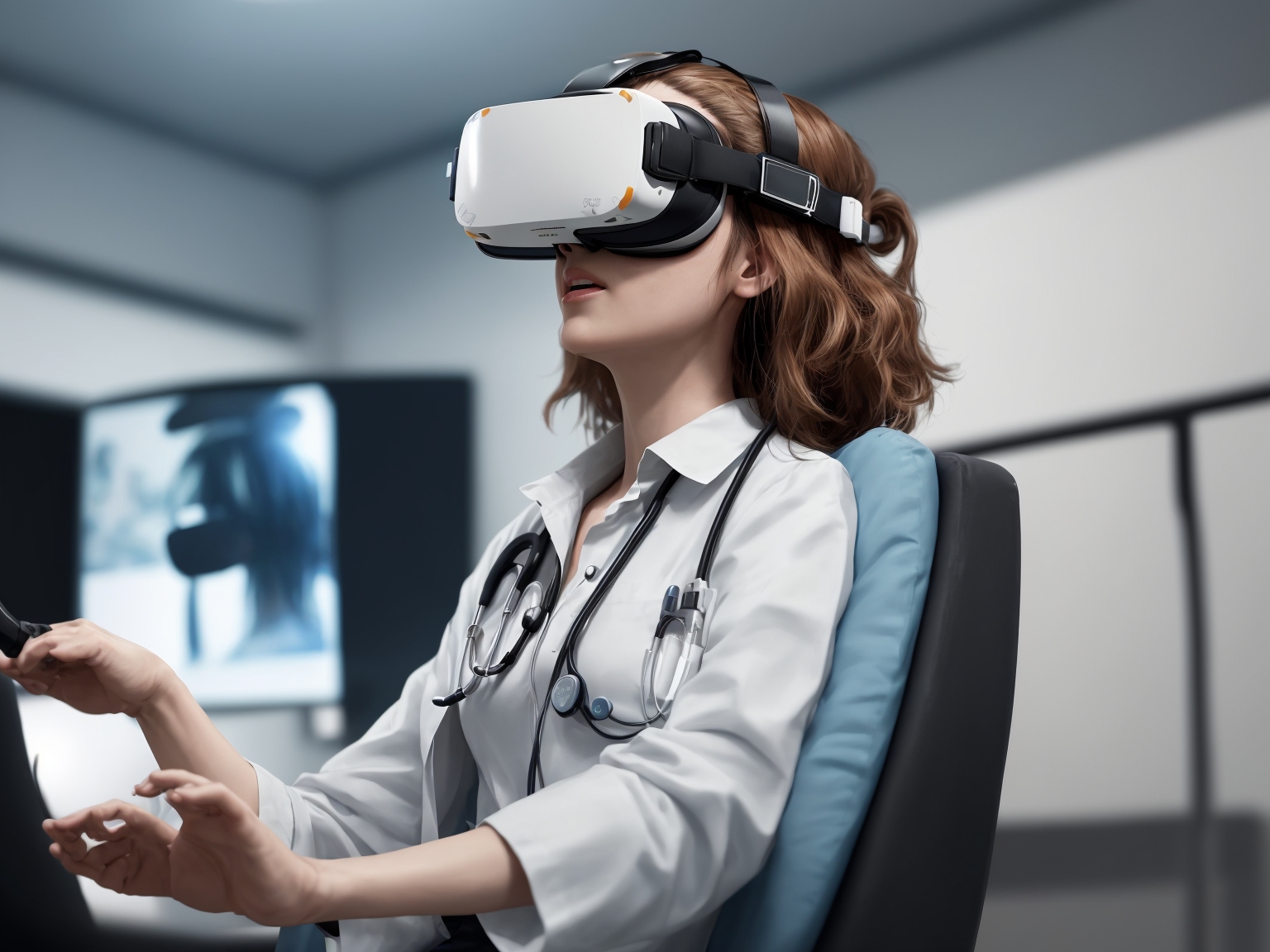# Unveiling the Future: Virtual Reality in Healthcare
Welcome to a fascinating exploration of how Virtual Reality (VR) is revolutionizing the world of healthcare! In this comprehensive blog post, we’ll delve into the remarkable ways VR is enhancing patient care, medical education, and research. Let’s embark on this captivating journey together.
## **The Intersection of Healthcare and Virtual Reality**
1. **Immersive Patient Care:** VR offers a new dimension to therapeutic interventions, such as pain management, mental health treatments, and physical rehabilitation.
2. **Transformative Medical Education:** VR simulates realistic patient scenarios for training medical professionals, fostering competence and reducing errors.
3. **Groundbreaking Research:** VR enables researchers to explore the human body in ways previously unimaginable, accelerating scientific discoveries and treatments.
## **The Power of Virtual Reality in Patient Care**
### **Pain Management**
– VR distraction therapy can help patients cope with chronic pain, reducing their dependence on opioids.
– Immersion in virtual worlds can provide a welcome escape from physical discomfort, promoting relaxation and stress reduction.
### **Mental Health Treatments**
– VR exposure therapy can help individuals confront their fears in a controlled environment, improving treatment outcomes for anxiety disorders.
– Virtual reality therapy can offer personalized treatment plans for patients with conditions like post-traumatic stress disorder (PTSD) and depression.
### **Physical Rehabilitation**
– VR provides interactive exercises that can motivate patients to stick to their rehabilitation routines, fostering faster recovery.
– The customizable nature of VR rehab games ensures a personalized experience for each patient, catering to unique needs and abilities.
## **VR: A Game Changer in Medical Education**
1. **Realistic Training Scenarios:** VR simulations allow medical students and professionals to practice on virtual patients, improving their procedural skills and confidence.
2. **Reduced Errors:** By offering a safe, controlled environment for learning, VR can help minimize errors in real-world patient care.
3. **Improved Retention:** The immersive nature of VR enhances learning and retention of complex medical concepts compared to traditional textbook or lecture methods.
## **VR: A Catalyst for Scientific Discoveries**
1. **Exploring the Unseen:** VR enables researchers to explore the microscopic world within the human body, aiding in the discovery of new treatments and cures.
2. **Virtual Collaboration:** By allowing scientists from around the globe to collaborate virtually, VR can accelerate scientific advancements and breakthroughs.
3. **Personalized Medicine:** With VR’s ability to model individual patient data, we can move towards truly personalized medicine, tailoring treatments specifically for each patient.
## **Frequently Asked Questions**
### **What is Virtual Reality (VR)?**
VR is a technology that creates immersive, simulated environments using computer-generated visuals and sound to mimic the real world or create entirely new virtual worlds.
### **How does VR impact healthcare?**
VR can revolutionize patient care by offering innovative therapies for pain management, mental health treatments, and physical rehabilitation. It transforms medical education by providing realistic training scenarios, reducing errors, and improving retention. Additionally, it drives scientific discoveries by enabling exploration of the microscopic world within the human body, fostering virtual collaboration, and paving the way for personalized medicine.
### **Is VR widely used in healthcare yet?**
While still emerging, VR is increasingly being adopted in various areas of healthcare, with numerous ongoing trials and applications already in use. Its potential impact on patient care, medical education, and research is significant.
## **Conclusion**
Virtual Reality represents a transformative force in the world of healthcare, offering innovative solutions for patients, medical professionals, and researchers alike. As we continue to explore this fascinating technology’s capabilities, we can look forward to a future where VR plays an integral role in improving health outcomes, advancing medical knowledge, and saving lives. Stay tuned as we uncover more about the exciting intersection of Virtual Reality and healthcare!

Leave a Reply